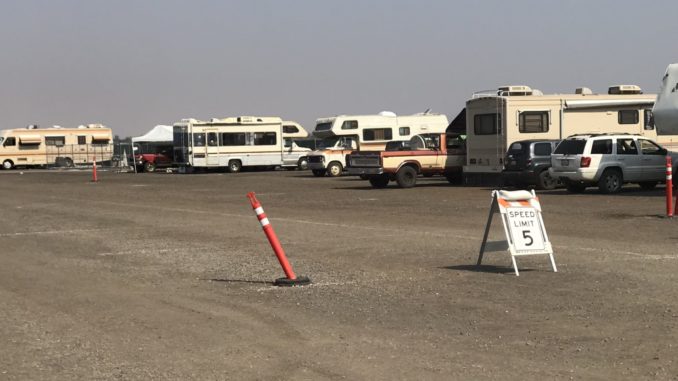
In accordance with rules established by a federal court, much of the ongoing drama surrounding Warren v. Chico—the civil case filed by eight plaintiffs against the city over lack of shelter options and anti-homeless ordinances—has played out in closed sessions of City Council meetings and court-ordered, confidential mediation sessions between the two parties. This week, a potential breach of that confidentiality by Councilman Sean Morgan led to threatened fines, while compliance with those rules resulted in threatened legal action by a local attorney alleging the council’s closed sessions violate transparency laws.
Both incidents happened during the run-up to the city’s closure today (Sept. 17) of its controversial Temporary Resting Site (TRS) at the Chico Municipal Airport. The site, which opened June 25, was widely panned by critics because of its remote location, lack of basic amenities and exposure to dangerous heat. Judge Morrison England Jr.—who is presiding over the Warren case—also criticized the site, saying in July, “Calling a plot of land a shelter does not make it so.”
Morgan sparked the ire of the federal court with comments he made on radio station KPAY’s Morning News show Sept. 9. Monday (Sept. 13), Magistrate Judge Kendall Newman—who is overseeing mediation between the parties in the case—issued an order saying Morgan publicly shared information discussed during settlement conferences and disparaged the plaintiffs, directing the city’s legal team to “show cause why significant monetary sanctions should not issue against the City and/or the specific councilperson for this violation” by Sept. 20.
Then, Wednesday (Sept. 15), attorney Rob Berry issued a cease-and-desist letter to the city alleging that the council’s closed-session deliberations and decisions relating to the Warren case constitute violations of the Brown Act. Among other things, Berry demands the city back away from its goal of establishing a shelter at the BMX track location in south Chico and audio-record closed sessions moving forward.
Loose lips
During Morgan’s 15-minute radio segment, he railed against the plaintiffs in the civil case, several times likening them to terrorists holding the city hostage. Asked what he thought might happen at a settlement conference scheduled for the following day he said, “Nothing,” claiming that the plaintiffs’ legal team is unwilling to negotiate. He also criticized the court, saying Judge England has given the city no direction regarding what he would like seen done.
“We are negotiating … the other side has the judge and a gun to our head,” he said, adding that the city is struggling to meet what he characterized as the plaintiffs’ unreasonable demands.
“These are strange things [for] people that don’t contribute at all to society to demand that society give them,” he said. “They have a list of demands that makes it look like they want a Holiday Inn … not a Holiday Inn Express, a full blown Holiday Inn.”
Morgan also detailed some of the city’s confidential strategies, most significantly announcing the closure of the TRS at the airport several days before the city confirmed that information via press release Monday (Sept. 13).
He also volunteered additional information—none of which has officially been made public—saying resources like fencing will be moved from the airport to Comanche Creek Greenway, home of the city’s largest homeless encampment. Morgan said that camping will be tolerated at Comanche Creek for the time being, and the city will continue to work on developing shelter at the BMX track.
Morgan responded to email requests for an interview but said he could not comment on the situation.
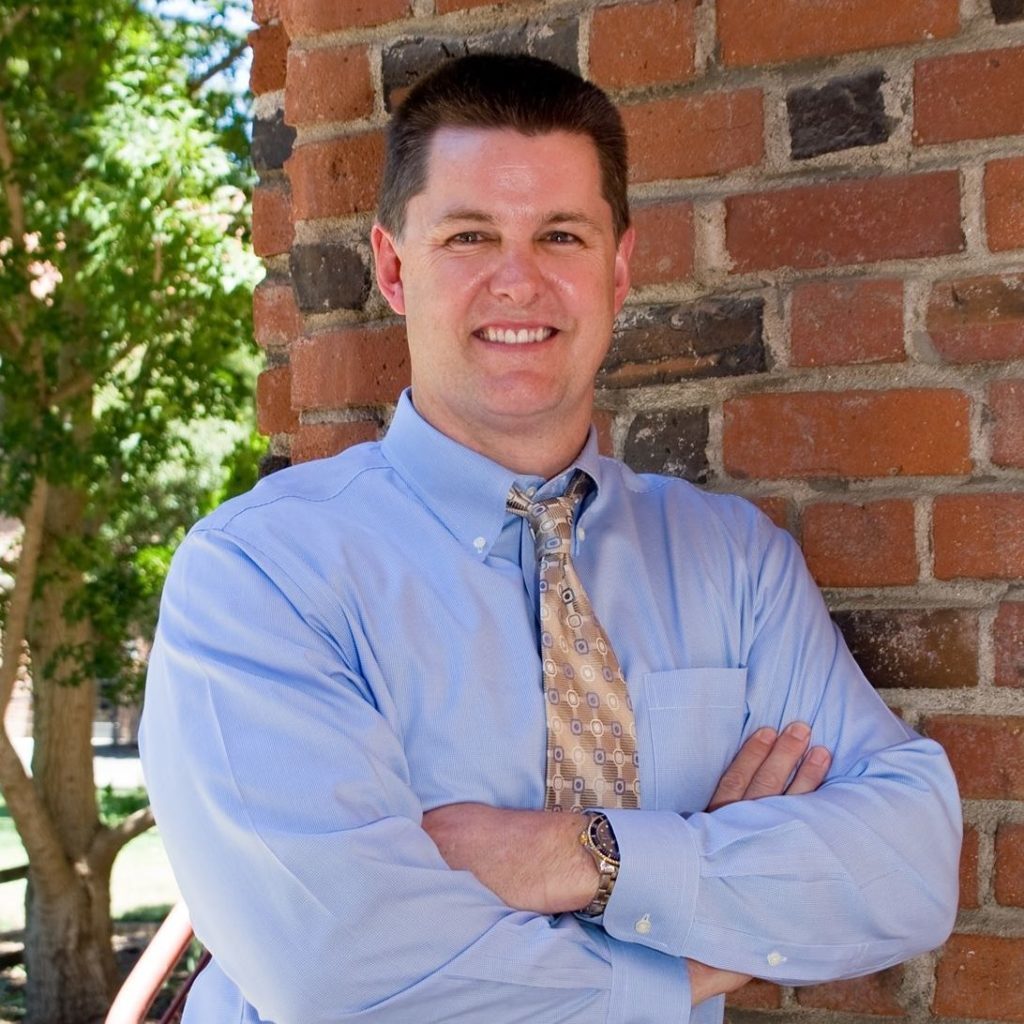
Mayor Andrew Coolidge said by phone Thursday (Sept. 16) that he was also limited in what he was allowed to comment on regarding the city’s plans and recent court order over Morgan’s radio kerfuffle. He couldn’t confirm the reallocation of resources to Comanche Creek.
“I’m very understanding of the fact that the community wants to know what’s going on, and not being able to tell them because of the nature of this lawsuit and the settlement conferences is challenging,” he said. “The citizens of Chico are our bosses and they want to know what’s happening, but we can’t tell them, and that’s very frustrating.”
Regarding Berry’s cease-and-desist letter, Coolidge said he had seen that it was online, but had not read it yet.
Through lengthy missives on his Chico First Facebook group, Berry has been threatening for several months to sue the city over homeless camping on behalf of an organization he founded called Chico Stewards for Parks and Waterways. In posting the cease-and-desist letter online, he said this lawsuit will start soon.
Crash and burn
Since plans for it became public knowledge, the airport site was widely criticized by the unhoused and their advocates, with several calling it a boondoggle—a senseless government-funded project. It cost approximately $20,000 to set up and $35,000 monthly according to a rundown of expenses provided by Chico City Councilwoman Alex Brown. The bulk went towards security ($18,000 monthly to Armed Guard Private Security) and transportation ($12,000 monthly to B-Line for four bus round-trips daily).
Though few people on any side of the issues have called the airport site a success—and critics still contend that it’s far from adequate to provide safety and shelter for the 571 people the city claimed it was designed to serve—some are now upset that it is closing.
“I was surprised at first that anyone went out there, but it turned out to be good for people in RVs and campers,” said homeless advocate Angela McLaughlin, founder of community organization Stand Up For Chico. “There’s regularly been about 30 people out there, including several families with young children.”
When the CN&R visited Wednesday morning (Sept. 15) , there were about 20 RVs and campers and another 20 cars, trucks and vans. A few tents could be seen, mostly accompanying vehicles, and one camper had constructed a wooden shelter.
McLaughlin said there is no room for the vehicles displaced from the airport site at Comanche Creek. In recent weeks, the Chico Police Department has had several vehicles towed from the greenway’s lot for expired registration or allegedly blocking roads and entries.
“If anything, [the airport] proved to have value as a safe parking site and highlighted the need for that, which is something the City Council shot down many times,” McLaughlin said. “As far as I know there’s no place designated for safe parking in all of Chico.
“There really is just no place to go.”

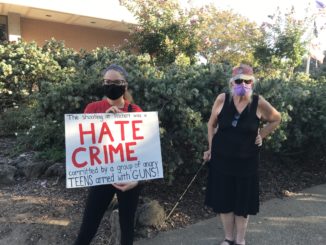
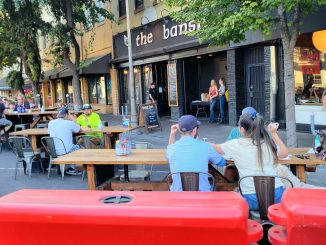
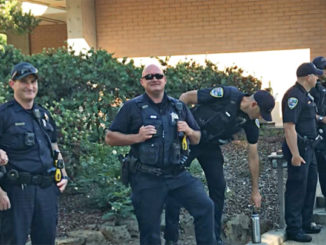
Be the first to comment